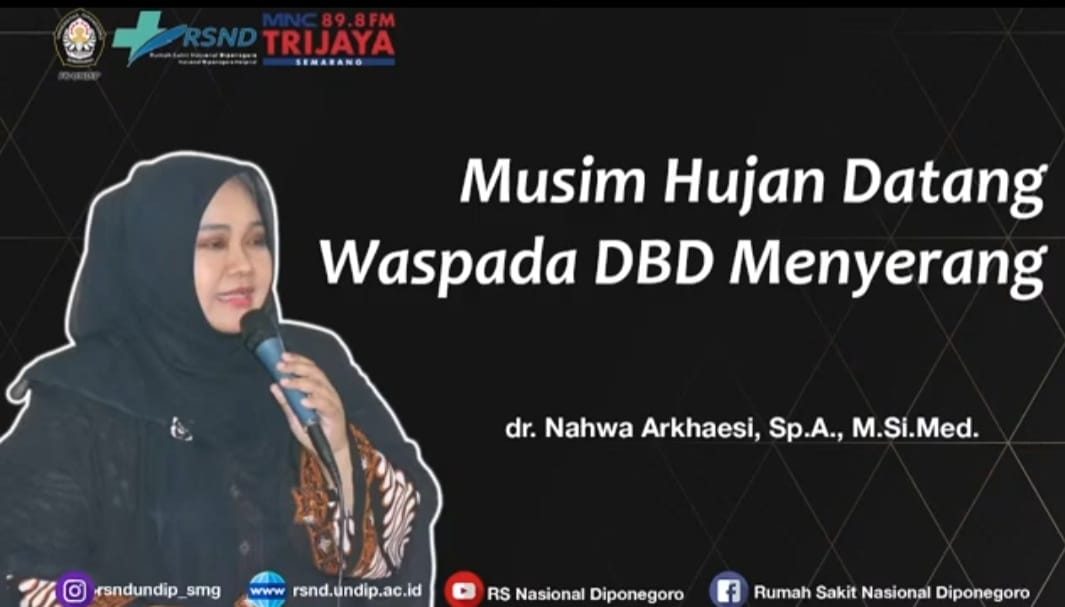In the midst of a pandemic, the public must also be aware of the potential for Dengue Hemorrhagic Fever (DHF) when entering the rainy season. This viral infection can attack all ages, from infants to the elderly.
“Dengue hemorrhagic fever is transmitted by Aedes aegypti and Aedes albopictus mosquitoes as the vector. DHF occurs in the transition season, when rain is interspersed with heat and there is rainwater remaining in areas outside the house such as between the trees or leaves, it can be a breeding ground for mosquitoes. So there will be more mosquitoes in those times and the incidence of dengue fever will increase,” said dr. Nahwa Arkhaesi, Sp.A., M.Si.Med., Pediatrician of Diponegoro National Hospital (RSND) of Diponegoro University.
“The first symptom that appears is fever, what we should do is reduce the fever with fever-reducing medicine. Drink often but don’t be surprised if the fever has been going up and down again, this is a fever phase and there is no need to panic. To prevent dehydration, you can consume plain water or milk which is not red or brown, because when the patient vomits it would be difficult to differentiate whether it is blood or the color of milk. The fever-reducing medicine that is allowed specifically for dengue fever is paracetamol,” she continued.
dr. Nahwa said that the phase or cycle of dengue fever (DHF) begins with the fever phase that occurs immediately after the virus begins to infect. High fever usually lasts for 2 to 7 days. On average, on the fourth day then the critical phase has started followed by the healing phase. The occurrence of bleeding is caused by the rapid decrease of platelets so there is a risk of bleeding but it does not always appear, the symptoms are different in everyone. Bleeding can appear in the febrile phase, and if the critical phase is not resolved, the bleeding will be more severe because it can trigger leaking of blood vessels.
“In the rainy season, I urge you to keep the environment clean outside and inside the house, especially water reservoirs or those areas that can be a place to collect water. Improve the environmental hygiene, clean the baths or water reservoirs frequently. The key to prevention is not to let stagnant water, clean up garbage that causes water to accumulate, and implement 3M, by burying used items, closing the lid of the bucket that collects water, and draining the tub. Regarding the pandemic which has not yet ended, the health protocols should be maintained in many ways such as implementing clean and healthy living as well as eating nutritious foods. If there are complaints of high fever, please be more alert, if the fever has decreased, but the patient still has a fever for 2 to 3 days, please seek professional treatment immediately,” concluded dr. Nahwa. (Lin – Public Relations)

